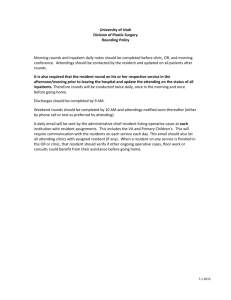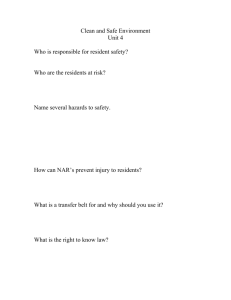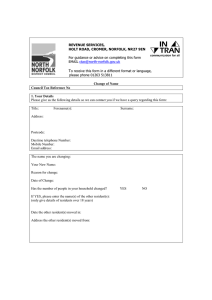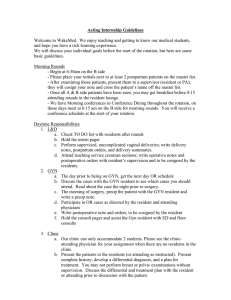How to be a Successful Med Student on Surgery
advertisement
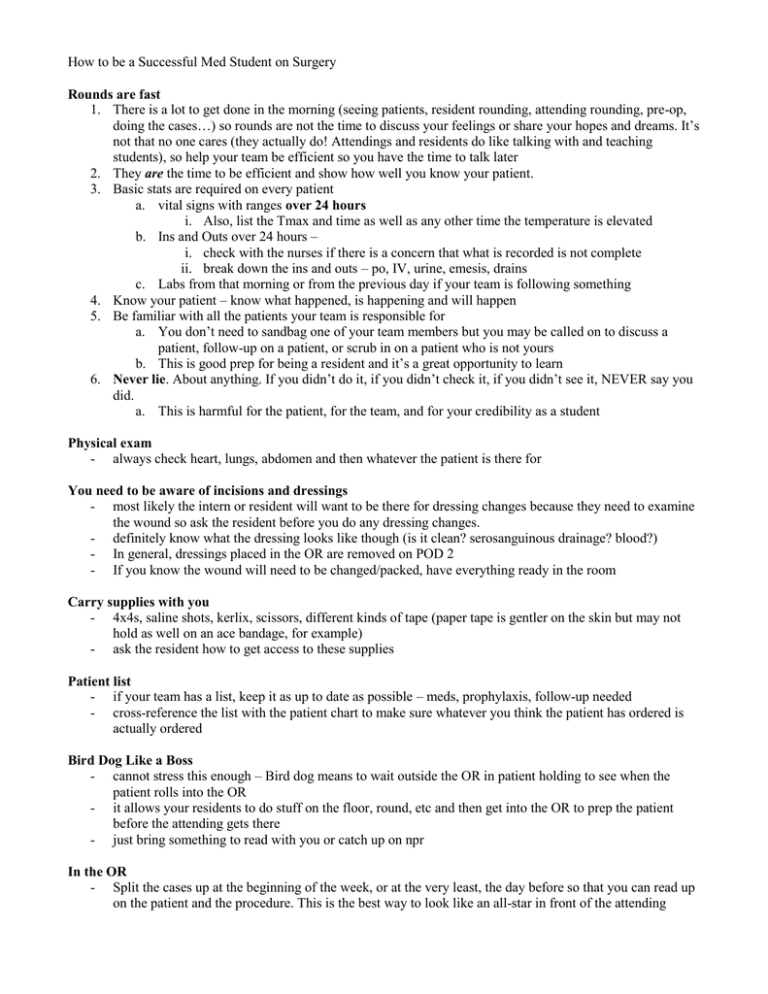
How to be a Successful Med Student on Surgery Rounds are fast 1. There is a lot to get done in the morning (seeing patients, resident rounding, attending rounding, pre-op, doing the cases…) so rounds are not the time to discuss your feelings or share your hopes and dreams. It’s not that no one cares (they actually do! Attendings and residents do like talking with and teaching students), so help your team be efficient so you have the time to talk later 2. They are the time to be efficient and show how well you know your patient. 3. Basic stats are required on every patient a. vital signs with ranges over 24 hours i. Also, list the Tmax and time as well as any other time the temperature is elevated b. Ins and Outs over 24 hours – i. check with the nurses if there is a concern that what is recorded is not complete ii. break down the ins and outs – po, IV, urine, emesis, drains c. Labs from that morning or from the previous day if your team is following something 4. Know your patient – know what happened, is happening and will happen 5. Be familiar with all the patients your team is responsible for a. You don’t need to sandbag one of your team members but you may be called on to discuss a patient, follow-up on a patient, or scrub in on a patient who is not yours b. This is good prep for being a resident and it’s a great opportunity to learn 6. Never lie. About anything. If you didn’t do it, if you didn’t check it, if you didn’t see it, NEVER say you did. a. This is harmful for the patient, for the team, and for your credibility as a student Physical exam - always check heart, lungs, abdomen and then whatever the patient is there for You need to be aware of incisions and dressings - most likely the intern or resident will want to be there for dressing changes because they need to examine the wound so ask the resident before you do any dressing changes. - definitely know what the dressing looks like though (is it clean? serosanguinous drainage? blood?) - In general, dressings placed in the OR are removed on POD 2 - If you know the wound will need to be changed/packed, have everything ready in the room Carry supplies with you - 4x4s, saline shots, kerlix, scissors, different kinds of tape (paper tape is gentler on the skin but may not hold as well on an ace bandage, for example) - ask the resident how to get access to these supplies Patient list - if your team has a list, keep it as up to date as possible – meds, prophylaxis, follow-up needed - cross-reference the list with the patient chart to make sure whatever you think the patient has ordered is actually ordered Bird Dog Like a Boss - cannot stress this enough – Bird dog means to wait outside the OR in patient holding to see when the patient rolls into the OR - it allows your residents to do stuff on the floor, round, etc and then get into the OR to prep the patient before the attending gets there - just bring something to read with you or catch up on npr In the OR - Split the cases up at the beginning of the week, or at the very least, the day before so that you can read up on the patient and the procedure. This is the best way to look like an all-star in front of the attending Ask questions in the OR! Don’t be afraid. Surgeons love to answer questions about the procedure, the particular case, etc. Just try to pick an appropriate time – if things are a bit heated, hold off on your questions until they are less heated. Definitely ask though! Be helpful - on the floor, see what you can do to make your residents and patients lives easier and better - if you’re asked to do it, do it now so it can be checked off the list - when you’re in the OR, help prep the patient (put on the SCDs, pull gloves and gowns, etc) - when the patient is done, help clean up the patient, get the bed, etc - Be proactive and don’t be an idiot - ASK if you don’t know how to do something - PAY attention when you’re taught because you will be expected to know for next time - Don’t get caught playing on your phone when your residents are hard at work - Carry snacks in your white coat and eat when you can. - There will be times that you won’t know what to do so you default to following your resident or staring at them while they enter orders. In the beginning, it can be challenging to know what to do at these times so ask what you can do to be helpful and then go find something to do – o check on your patient (the hospital is fun for no one. They will appreciate it), o follow-up on labs, o check the status of the OR, o check out the cases for the next day, o gather supplies for dressing changes for rounds on the next day. - Be accessible always Courtney Devin July 2014

